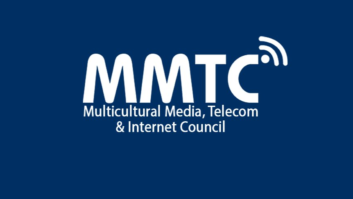Broadcaster and free speech advocate William O’Shaughnessy did an interview with the new head of the NAB this week. The station provided a transcript in which David Rehr talks about his fundraising for George Bush, his prediction on the next presidential election (McCain) and his feelings about indecency.
The following transcript was provided by Whitney Radio/WVOX and WRTN.
William O’Shaughnessy’s interview with:
DAVID REHR, President, National Association of Broadcasters joined by AMBASSADOR OGDEN ROGERS REID, President, Council of American Ambassadors
GOVERNOR MARIO M. CUOMO, Willkie Farr & Gallagher and GORDON HASTINGS, President, Broadcasters Foundation of America
re: Free Speech on the Airwaves
broadcast, June 19, 2006 Whitney Radio WVOX and WRTN Westchester, NY
William O’Shaughnessy: It’s a pleasure once again to have the privilege of your hearth and home. This is a busy political season abroad in the land and we have a special guest for you this Monday afternoon in the Golden Apple. He’s come up from the nation’s capital, Washington DC. We are very honored to have him visit WVOX, our community radio station, which pulses and throbs with 500 mighty watts of power! He is president of the National Association of Broadcasters in Washington… the chief lobbyist, drumbeater and advocate for every radio and television station in America. His name is David Rehr. Welcome to Westchester, sir.
David Rehr: Thank you Bill. I appreciate being here and I am experiencing, in your station, the very best of local radio. and it’s very inspiring.
William O’Shaughnessy: You represent.
David Rehr: The National Association of Broadcasters has about 8,300 members, of which 1,200 are television affiliates and the other 7,000-plus are radio stations all across America.
William O’Shaughnessy: You’re gonna have 7,000 guys mad at you. Not that the word would get out. I don’t much like publicity. We won’t tell anybody. (laughter)
David Rehr: I’ll read about it tomorrow and I’ll probably see it on all the major TV networks! (laughter)
William O’Shaughnessy: President David Rehr, you have so much on your agenda. First of all, you’re a big Washington-insider lobbyist. I hear you raised millions for George W. Bush.
David Rehr: Well, that may be a little exaggerated. I raised a lot of money for the president in his last re-election. because at the time I believed him to be very pro-small business, but millions is an overstatement.
William O’Shaughnessy: How do you think the president is doing now?
David Rehr: You know, I think he is doing better. I still believe there are a lot of issues that trouble the country: our intervention in Iraq and Afghanistan on the international front. and gas prices on the national front. I think he has hit a low and now is working his way back up in the public opinion ratings.
William O’Shaughnessy: You talk to a lot of senators and congressmen. how would you rate George Bush as a president?
David Rehr: He is very polarized. You either like him or you don’t like him. I think we are in a time, unfortunately, where our country is very polarized on a bunch of issues. We have the blue and the red states. People are trying to grasp for what holds together. If you look at the public opinion polls, you can see that it, virtually, is a mirror unto itself. Half the people want taxes cut, half the people don’t.
William O’Shaughnessy: Who’s going to be the next president?
David Rehr: If I had to pick today . I would probably say John McCain.
William O’Shaughnessy: Is he healthy?
David Rehr: Yes.
William O’Shaughnessy: You like McCain?
David Rehr: I think he is going to be the president of the United States. He is very popular. I think your own senator – Hillary Rodham Clinton – will probably be the likely Democratic nominee. I think if the election were held in 2008, if it was John McCain versus Hilary Clinton, I think McCain would edge her out.
William O’Shaughnessy: These proceedings are greatly enhanced by the presence of the president of the Broadcasters Association of America. He’s come down from his headquarters in Greenwich: Gordon Hastings. Listen to this voice; he’s a real radio man.
Gordon Hastings: What an introduction, Bill. It is always nice to see you . the last time I was behind a microphone was at a local radio station, my own WSRK in Oneonta, New York. What a pleasure it is to be back at a truly great local radio station.
William O’Shaughnessy: Well, you’re one of us, Gordon. And you are doing the best work of your life with that Broadcasters Foundation of America. The Chairman lives over in the next heath, Phil Lombardo, in Bronxville. Gordon Hastings and David Rehr – we have a great American on the phone: Ambassador Ogden Rogers Reid.
Ambassador Ogden Reid: I’m delighted to be with you, Bill.
William O’Shaughnessy: Ogden Reid is a man who needs no introduction to this audience here in the heart of the Eastern Establishment. He represented this area in Congress. He was the first ambassador to the infant nation of Israel. His family owned the Herald Tribune, which was founded by Horace Greeley. He is now doing some of the best work of his life as president of the Council of American Ambassadors. He is a great defender of free speech and he took on a man named Harley O. Staggers on the floor of the House of Representatives when Frank Stanton and Cronkite were in trouble. Ambassador Reid, you honor us.
Ambassador Ogden Reid: Well, I thank Bill O’Shaughnessy for his leadership of WVOX and the Broadcasters Foundation and for all the help he has given to the First Amendment. I heard your earlier comments about John McCain. and in the current issue of the Ambassadors Review, McCain has written an excellent piece on trying to deal with “earmarking,” which is a means whereby a lot of people have 15 billion in private pork projects that go through the House and Senate without any committee action and without any serious action or even the knowledge of members.
William O’Shaughnessy: Ogden Reid, what’s wrong with bringing home the bacon? David Rehr, I ask you the same thing.
David Rehr: Let me begin by saying that I think it is important for people’s money to be spent in their districts. In Washington there are always more people standing in line for money than the amount of money that’s there. So the historic context for Congress has been the committees evaluating which are the most important priorities of the government and funding them. I think what’s happened over the years with this “earmarking” process – it’s become very easy just to say: give me four million there and six million here, twenty-two million here. A lot of these programs, in my opinion, might not be able to be passed by a committee of the member’s peers.
William O’Shaughnessy: David Rehr, you are a lobbyist. that’s not such a great thing to be in this day in age.
David Rehr: I remember my mother. when she was alive. asked me what I wanted to be. and I told her I was going to be a lobbyist. She said, “Why don’t you become a lawyer?” I said, “But Mom, you hate lawyers.” She said, “Yeah, but at least I can tell my neighbors what you do!” (laughter) Being a lobbyist in this era of the Jack Abramoff scandals and some of the other things going on in Washington gets a lot of bad PR. But when you’re standing in the halls of Congress next to a young person who has juvenile diabetes and they’re trying to be a lobbyist asking the government for funds to solve juvenile diabetes in this country, you can look at them and say, “That’s what’s great about America.” Everybody’s opinion can be heard and everyone can say what they freely want to say and get the attention of their member of Congress on behalf of whatever they believe in.
William O’Shaughnessy: Ogden Reid, how long did you serve in the Congress?
Ambassador Ogden Reid: I served for 12 years, Bill, and I was concerned with corruption along with John Lindsay. I agree with what President Rehr just said. One of the things we were dealing with was the “private” bills members were putting in to bring an au pair or a nanny from Europe without benefit of committee consideration or even consideration by Immigration. A member of Congress can get five or ten thousand dollars every time he puts in one of those bills. I remember testifying before Charlie Halleck and I said those communications should be a matter of public record. Halleck leaned over the bench and said “Reid, what are you trying to do – depopulate the place?” (laughter) I am all for bringing home the bacon and doing it fairly and having appropriate lobbying – but with scrutiny and transparency.
William O’Shaughnessy: Ambassador Reid, I haven’t had a chance to ask David Rehr about “indecency.” My mind drifts back to those desperate days when Mr. Staggers, had you not prevailed, wanted to throw Walter Cronkite and Dr. Stanton in the slammer.
Ambassador Ogden Reid: This was all over outtakes, if you may recall.
William O’Shaughnessy: David Rehr has got his hands full because if someone drops the “F” bomb on these airwaves, it’s going to cost about $350,000 . if we are lucky. What advice would you, Ambassador Reid, glorious First Amendment champion that you are, give to President David Rehr on this thing?
Ambassador Ogden Reid: I don’t like to see speech circumscribed in any way, shape or form. I suppose there are cases where there have been very blatant, repeated obscenity. Just because a play or show has a mention of it. that’s a reflection of life. I spent a little bit of time in Paris with the Herald Tribune and the French don’t understand our trying to control the presentation of speech the way some in the Congress are trying to do. I think it’s a mistake. and I’d rather have Free Speech up or down with a little obscenity, than lose Free Speech altogether.
William O’Shaughnessy: David Rehr – I know you’ve had a lot of time to think about this big, tough issue. You’ve got the FCC raising hell, parents raising all kinds of hell, and the Congress just rolled right over on this.
David Rehr: In fact, the Senate passed the Indecency Fines Bill by unanimous consent, which means that not one senator stood against it. The Bill then moved onto the House and passed with all but 35 members voting “No” – which is about 401 members voting “Yes”. It’s an election year and people want to be on the side of “protecting children.” I do think we need to take a serious and hard look. It’s easy to pick on a few words and a few people who may say some things, but I think the Ambassador makes a good point; it isn’t too much of a jump from that to starting to control what people can say, when they can say it. and how they can say it. I think what’s made America such a great country is for people to say what they want.
William O’Shaughnessy: Ambassador Reid, I have lobbied President David Rehr to seek your wisdom and counsel and I’m sure you’ll be hearing from him. Thank you, Ambassador, for joining us.
Ambassador Ogden Reid: I look forward to hearing from him. And it’s great to be on the air with these distinguished gentlemen: President Rehr and the president of the Broadcasters Foundation, Mr. Hastings. and you, Bill, whom I have admired for so long.
William O’Shaughnessy: It’s 2:24 on this beautiful, summer-like day. Next. do you remember the “Fairness” Doctrine, David Rehr? We would have had a “Fairness” Doctrine. Rupert Murdoch wouldn’t have had his Boston newspapers . but for the intercession and great wisdom of our next guest. Please welcome to this important discussion . the 52nd governor of New York: Mario Matthew Cuomo. How are you, sir?
Governor Mario Cuomo: Well, I’m disbelieving at the moment, Bill. You’ve talked about my helping Rupert Murdoch keep his newspapers as “an act of wisdom”. It elected me a public citizen . that’s what happened, actually. (laughter)
William O’Shaughnessy: Oh, that’s right. Murdoch forgot. He studied Latin, but was absent the day they taught “Quid Pro Quo.”
Governor Mario Cuomo: No, he remembered! He was nice enough to call up and say, “I’m sorry I’m going to have to beat you in this campaign, Mario, because you really did help me out in keeping my papers aloft . any way I can help you in the private world, I will. good luck to you!” And I’ve been in the private world ever since! Mr. President Rehr, it’s a privilege to say hello to you.
I’m in the “me too” category, having listened to Ambassador Reid and having spoken to him only days ago on this very subject. I’m very much where “Brown” Reid is. And you can just put me down as an echo of the Reid sentiments. The Fairness Doctrine sounded right – sounded “fair” – but in the long run, I thought it was more dangerous than it was fair.
And there is a certain degree of palpable hypocrisy by the Congress when they make these fine moral judgments about obscenity. First of all, obscenity is such an elusive subject, that the best a Supreme Court justice could do in trying to define it was: “You know it when you see it or hear it” – I guess. That’s a hell of a thing to try to regulate – when you have to have it happen to plead guilty.
Apart from that . if you want to talk about obscenity in communications . how about the billions of dollars they pass every year in invisible bills nobody gets a chance to see? How about all these moments of silence? If they wanted to deal with honesty in communications and morality in communications . they should start there. We’re never going to pass a bill that hasn’t been of full exposure. And we know that doesn’t happen. We know how they tack on bills for friends at the last moment, etc. So it comes with ill grace from any Congress like the ones we’ve had recently to start talking about how we’re terribly worried about the children, etc. The parents’ jobs are at home. There are threats to children coming from all directions and being proliferated. They carry threats at the palms of their hands with all the mechanisms that are out there.
Unless you teach them morality at home or at your school – unless you give them principles they can understand – they have to be able to define obscenity – they have to be able to say it’s wrong on this basis. And when they say it’s wrong – they will stop listening to it. But to try to do it in a statute – it just doesn’t work.
William O’Shaughnessy: Governor – a lot of people are still mad at you that you didn’t run for the presidency.
Governor Mario Cuomo: Rupert’s not! (laughter)
William O’Shaughnessy: A lot of people were also astonished and disappointed when you hung up on Bill Clinton and wouldn’t let him put you on the Supreme Court. First of all, how would you decide this if you were a Supreme Court justice. Or a better question is . on this obscenity and indecency thing . would you have signed it – like President Bush, our hero – if you were president?
Governor Mario Cuomo: No, I wouldn’t have. You can’t do it that way, Bill. That’s the whole point. That was Potter Stewart’s point. You know it when you see it. It was very hard. It gets easier when you’re dealing with children. But even then it gets hard. How do you define obscenity? Different generations have defined it differently. But in the end, you’re not going to define it for people with a law, with a statute. You’re not able to enforce it… not just the problem of trying to find the words to describe it. Then you have to enforce it. How do you enforce it? How many people do you use listening in? It just doesn’t work. It’s not manageable.
These are cultural problems. Not legislative problems. The rule has to be self-imposed by your culture. Your culture has to decide. I said once to the broadcasters – as a matter of fact, Bill, I think it was out in California with you, in Los Angeles. I gave a speech in which I said we are a people that desires what we disdain and disdains what we desire. If it weren’t for people who are buying the obscene and even pornographic products, we would not have this problem. But we have this problem because the culture wants it. and you are not going to change the culture with a law. especially when the public finds the lawmakers to be hypocritical.
William O’Shaughnessy: Governor, let me ask David Rehr. do you think your television and radio stations are entirely blameless in all this, as witness the “Opie and Anthony” stunt in the cathedral?
David Rehr: I think there are some that are a little. edgy.
William O’Shaughnessy: Is “edgy” a new word for vulgar?
David Rehr: Yes, but I think another problem in America is that we focus on the one or two percent that is edgy or vulgar rather than focusing on the 98 percent that is decent, local and wholesome.
Gordon Hastings: There is a term we have all grown up with in the broadcasting business and it hasn’t been thrown around these microphones today and that is the responsibility of the local broadcaster as a “gatekeeper.” I’ve traveled around to many television and radio markets throughout the nation and talked to many broadcasters – general managers, owners – who look at themselves as a “gatekeeper” as to what goes out to their audience. A lot of those people in charge of broadcast stations would have “self-policed” Opie and Anthony. They would not have gotten out of the studio after pulling that kind of a performance at the late C.P. Person’s television or radio station in Alabama. It simply would not have happened because of a self-policing situation. This is a republic and when you operate with elected officials representing the general population, you’re not going to win having Howard Stern and Opie and Anthony as your poster boys. You’re not going to win that battle. I think it becomes a real academic conversation for the broadcaster in saying we’ve got a self-policing situation. This is not going to fly.
William O’Shaughnessy: Governor, is there any way out of this “unholy” mess?
Governor Mario Cuomo: If you mean . is there a perfect solution that will perfectly define what society should find objectionable in references to sex. of course not. Society is constantly shifting and evolving.
The “F” word. I mean, I have lived long enough. probably we all have . to be shocked at how freely that word is thrown around in movies, of all kinds, “PG” movies! I went all through that when I was hired by the Weinsteins – with Michael Moore’s movie. I had big discussions with people there who were on their way out as the rule-makers.
The question was: what’s a “PG” rating. how do you determine a “PG”? Well, if you use a certain word twice, you know, and then we drop it down a class. I said,” You’re kidding!” These are basically arbitrary rules. It’s just the “F” word. Matilda and I were shocked. We had a movie and it was “PG” and the language was just stunning to me.
William O’Shaughnessy: What did Matilda Cuomo say?
Governor Mario Cuomo: Tsk, tsk, change the channel, Mario. Stop sweating and change the channel. (laughter) Incidentally, that is the solution. Gordon says the broadcasters are “gatekeepers”. But let’s be candid. You appeal to a certain audience. You know what your audience will tolerate and not tolerate. Some audiences will not tolerate the hip-hop language . and now that’s music in today’s definition. It doesn’t sell for you. People are offended and they don’t like it and you don’t show it. Yes, they are gatekeepers, but they are not producing through their gatekeepers any predictable universal standard. It’s the standard that Bill wants for his two radio stations. It’s either a good one or not a good one, depending upon the people who listen. When you know you’re not going to get enough people tuning in. you change your standard or you go out of the business. There is no way to come up with a perfect solution. I think you have to do this with a generalization.
Free Speech is so valuable that I will pay even a big price for it. even if my sensitivities have to be offended from time to time.
I’ll pay that price in the interest of Free Speech.
William O’Shaughnessy: David Rehr, you have four children, ages three to seven . and Governor, you have how many granddaughters?
Governor Mario Cuomo: Twelve, O’Shaughnessy. And I have a grandson, five months old, Bill. Incidentally, I’m working on standards for him. (laughter)
William O’Shaughnessy: Were you shocked when you heard it was a boy? What did your son Christopher Cuomo, who is with ABC News, say . “Dad, you’re not going to believe this.”?
Governor Mario Cuomo: Well. now, you see. as we are defining obscenity, this is a good example. Christopher is a television person. He is doing well, thank you, and his wife Cristina is a very astute, learned person . and they asked Christopher . well, this is a male … and so you named him Mario . why? I think it is easy enough to say “I am very proud of my father… and his name happens to be Mario.” He didn’t say that. He said the baby was born with an unusually large nose and I saw it as soon as Cristina saw it . we looked at one another and said: “This is a Mario if I ever saw one!” Now to me that is virtual obscenity! (laughter)
William O’Shaughnessy: Let me ask you, “Grandfather” Cuomo and “Father” Rehr . when you see this stuff come on television or hear it on the radio, do you get a little crazy?
Governor Mario Cuomo: Let me jump in, Bill. We do that all the time. We are alone in the apartment in Manhattan and the grandkids are there all the time and a lot of them stay over – a 9 year old, a 10 year old, and I have a 21 year old. we won’t count her. We have this problem with them all the time.
William O’Shaughnessy: They don’t watch cartoons.
Governor Mario Cuomo: No, they do watch Disney. but they want to watch movies too. You have to go to the video store and you have to be very careful. You can’t just assume that “PG” does it. You have to work at it. You have to let them see what you wish for them to see. Not just because someone told you it is this or that. I agree with the Europeans who feel we don’t put enough of our prohibitory instinct on the subject of violence. If we are going to overdo things, we should overdo the restrictions on violence.
I’m as offended at having the kids see so much violence that they take it for granted in what is already a tremendously violent society – the American society – which still has the death penalty when others do not. That’s violence. It still reveres the gun . and has large numbers of people holding semi-automatic weapons over their heads saying, “This is my flag.” My God! Talk about violence. We were born in violence, in gunshot and flames, we expanded in violence, we invented the atom bomb, we are a violent people and that bothers me. And so, that kind of stuff I won’t let my grandchildren look at if I can get to it first.
William O’Shaughnessy: President David Rehr, do you wrestle with this?
David Rehr: We do. I think every parent of young children wrestles on what’s “age appropriate” for their children. whether they are listening to the radio or watching television. that it be “age appropriate” for the children. Sometimes we turn it off, sometimes we switch channels or put in a DVD.
But I also want my children to understand that in America people can say and think what they want. My big worry with the whole indecency debate is not only do we have the whole debate about the culture, but there is not very much of a span between what is considered to be indecent and what is considered to be something people should not dare talk about. When you get into this idea that there are things in America that should not be talked about. that is bad for our country. Very bad.
William O’Shaughnessy: Remember that line “sticks and stones.”? Is there an eloquent way to say that, Mario Cuomo? “Sticks and stones may break my bones . but names will never hurt me”?
Governor Mario Cuomo: I don’t know, Bill. I have a book by A.J. Parkinson, my favorite philosopher and writer. I’ll look at it and see what he says. (laughter)
David Rehr: I think part of the problem we face as broadcasters is that the general culture – whether it be violent or sexual – has evolved and changed. A lot of people harken back to the good old days. But, the good old days weren’t all that good in many respects.
Gordon Hastings: The question is: Are we over-the-air broadcasters going to have to carry the sword? Are we the ones that are going to be constantly forced to push the envelope? Whether you agree with this or not, there is a whole body of belief in America that these are public airwaves. There are a whole lot of people that would like to think it’s ours and they are private because we modulate them .
William O’Shaughnessy: And we are public trustees .
Gordon Hastings: Thank you for using that term. Because when you are a trustee, all these issues come into play. They come into play as a prudent business decision, and as this whole concept of gatekeeper and what is the prudent thing to do. I don’t believe in censorship and we all believe in the First Amendment, but we are also responsible for the maintenance of certain standards as over-the-air broadcasters.
William O’Shaughnessy: David Rehr, you have been a lobbyist for a long time. Is it hard to talk to a congressman or a senator about this.
David Rehr: It really isn’t. I think a lot of people look at their members of Congress and go: “Wow . they’re the brightest and smartest! They’ve been elected! Many years ago, in the early eighties, I kind of felt the same way . until one day I woke up and said, “You know what? They’re kind of like America itself. Congress represents America. We have tall people, we have short people, we have smart people, and maybe a group of people who aren’t as smart. We have an eclectic group of people who all work really hard. New York is blessed to have some outstanding members of Congress representing them, but they are still regular people. Part of the problem we face with our elected officials is that we put them on these high pedestals and after awhile they also think they are on these high pedestals and it changes their whole outlook on the world.
William O’Shaughnessy: Who are some of the good ones? I won’t ask you which ones are the bad ones because we still have to deal with them. Take the Senate.
David Rehr: I’ll give you people who used to be in the Senate. so that way I won’t get into trouble. A person I always admired . at least on Social Security, Medicare, Medicaid issues . was Daniel Patrick Moynihan. He was a brilliant, brilliant man. I didn’t agree with him all the time. But I always thought, “Here is a man who is a UN Ambassador, he was in the United States Senate, who just really put the nation and his state first.”
William O’Shaughnessy: He sat at that very microphone many times . you and Russert and I should start a Pat Moynihan Club. Who’s another one? Give me a good congressman.
David Rehr: This will be somewhat controversial to the people listening. I think Newt Gingrich . when he was speaker of the House. He is one of the smartest people I have ever encountered in politics – and still is. He is on a book tour. He might run for president as a Republican.
William O’Shaughnessy: Does he have a chance?
David Rehr: I think he’s got a better chance than people think .
William O’Shaughnessy: Is it tough that you’ve got like . 8,000 bosses? In the beer industry you had the Buschs and the Heinekens, et al.
David Rehr: I also had 1,850 distributors, family-owned and operated, all across the country, plus the “Legacy” families. When I was interviewed for the job for the broadcasters, several of the people, including the great Phil Lombardo, said this is a rough and tumble business. I kind of looked at them and looked around the room and said anyone here ever meet August Busch, III? He is one of the most intense people I have ever met in my life, a great businessman, a superb entrepreneur. I’ll match up the intensity and competitive spirit of August, III to anyone in television or radio.
Gordon Hastings: Isn’t it interesting how the beer industry has very aggressively and creatively taken the initiative to defend its own reputation in this whole issue of drinking responsibly and the problem of underage drinking? They have done a remarkable job in saying, “Hey, we are part of the issue, but we also want to be part of that solution.” They did not come out on this thing in a totally defensive manner, which I think is very smart of them. I think there is a little bit of a lesson there. That’s an extraordinarily volatile public issue. Mothers Against Drunk Driving were fiercely in the face of the beer industry and they still are.
William O’Shaughnessy: Before you leave, Mr. Rehr, is local radio going to be around for a while? We’ve got iPods . my wife gave me one for Christmas . I haven’t taken it out of my drawer yet. We’ve also got the damn Star Wars satellites you have to pay for. Is local-yokel radio going to survive?
David Rehr: That’s a very good question. I’m moving across the country, I’m leaving here and going to Minnesota tomorrow and then Orlando on Wednesday and then back to Washington. When I’m out meeting with radio broadcasters, I remind them, in the case of satellite radio … both XM and Sirius have about ten million subscribers, give or take. Every week between 260 and 280 million Americans listen to local radio!
William O’Shaughnessy: I’ve got twelve people in Mamaroneck myself! (laughter)
David Rehr: I think local radio, the thing that gets me all fired up every day to represent you and the 8,300 members of the NAB all across the country, is all about community. It’s about the community. Think of what the world would be like if the world had no local radio?
Gordon Hastings: There would be only express trains! No local stops . you could take the train from here to Los Angeles and not be able to get off in Norwalk! (laughter)
David Rehr: The Wall Street Journal has said this radio station is “the quintessential local radio station in America.”
William O’Shaughnessy: I don’t even read the Journal!
David Rehr: I read it religiously and I needed to come and find out for myself. I have been so impressed with the diversity of viewpoint and the interesting people I meet in the hallways . the interns who are getting an education here on what local radio is all about and it’s a great testament to the importance of local radio that makes the community vibrant.
William O’Shaughnessy: President Rehr, when he returns to D.C., will assemble his high council and advisors and say, “They don’t pay me enough to listen to O’Shaughnessy!” (laughter)
David Rehr: I want to make the point that radio and television will adapt and we will change and we will evolve. But that’s what’s great about our industry. We are fiercely entrepreneurial and tremendously competitive and all of those juices and energy will be put in the right direction to serve the people who are listening to the station right now.
William O’Shaughnessy: I’m going to give you a new word for what we do: Profession.
David Rehr: Profession. Yes, I agree.
William O’Shaughnessy: David Rehr, your presence honors us and your intelligence inspires us.
David Rehr: Thank you, Bill . and God bless you . and God bless all the people that listen to this remarkable radio station .












